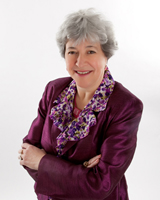 When you are stuck, how do you figure out the next step? I asked several of my wonderful colleagues (Geralin Thomas, Andrea Sharb, Tracey Foulkes, April Lane Benson, Sue West, Val Sgro, Yota Schneider) to think about this question and share their personal strategies with us. Their fabulous responses are filled with honesty, humor, and creativity. My gratitude goes to each of them for taking the time to reflect, and give us their insightful, encouraging words of wisdom. If you are feeling stuck, perhaps one of these ideas will work for you.
When you are stuck, how do you figure out the next step? I asked several of my wonderful colleagues (Geralin Thomas, Andrea Sharb, Tracey Foulkes, April Lane Benson, Sue West, Val Sgro, Yota Schneider) to think about this question and share their personal strategies with us. Their fabulous responses are filled with honesty, humor, and creativity. My gratitude goes to each of them for taking the time to reflect, and give us their insightful, encouraging words of wisdom. If you are feeling stuck, perhaps one of these ideas will work for you.
When you are stuck, how do you figure out the next step? . . .
1. Help Another
“When stuck I intentionally and purposefully find someone who needs help and then I help them. Helping someone who needs or wants assistance forces me to think about something other than whatever current challenge I'm dealing with. I've learned that being isolated rarely helps me figure out my next steps and while it's much easier to stay home alone, I've found that being helpful is the antidote to being stuck.”
Geralin Thomas, CPO-CD, Professional Organizer & Organizing Instructor
2. Coach Self
“When I’m stuck, I coach myself, like I’d coach a client. I get curious about my roadblock and what can get me going again. Questions like: What is really getting in the way of me moving forward? What do I want from the project? What makes the project important to me? What has worked for me in the past in similar situations? These questions will generally get me beyond stuck.
Andrea Sharb, CPO-CD, ACC, COC, CPO, Professional Organizer & Coach
3. Call Accountability Buddy
“I freak out, and then procrastinate. Get annoyed at myself for procrastinating and start asking why I'm freaking out. It's usually from overwhelm, taking on too much, or being shoved in a direction outside my comfort zone. I then call on an accountability buddy (I have a few), and unpack what I am thinking and feeling. Breathe, then break into my favourite mantra 'absolutely no excuses' - pick myself up and step forward. Success is in the doing, so I might as well just get it done."
Tracey Foulkes, Productivity Specialist
4. Pause First
“When I'm stuck, the first thing I do is take a pause to clear my head. I might meditate and then go outside (no matter what the weather) and do some kind of physical exercise. Then I'm likely to start making notes or talk to a friend about my stuckness, try to pull it apart, and look closely at just one piece of it. Finally, I carefully set a realistic, measurable goal related to that one piece which continues to melt some of the glue!”
April Lane Benson, Ph.D., Psychologist & Author
5. Activate Strengths
“I use several strategies, mostly taking advantage of my natural verbal processing. These also compensate for not being able to order steps as well in my head as outside my head. I use a written set of decision-making criteria to filter business ideas through. I talk through the problem aloud to myself, to a colleague or my business coach. I write about where I am stuck. I’ll map out the steps to a process so I can see a logical next step. I’ll research to access my intuition or sometimes to gain confidence. I’ll use strategies from a similar situation simply to gain momentum.”
Sue West, CPO-CD, COC, CPO, Professional Organizer, Coach, & Author
6. Research, Sleep, or Chew
“It all depends what I'm stuck on. If it requires an answer I can research, I go to the Internet; if I need basic knowledge, I use the children's section of the public library. If it requires judgment, I seek the advice of trusted colleagues, and then I sleep on it. If I'm stuck writing a passage in one of my novels, I pace around, talk to myself, and literally chew on something; somehow the chewing motion unleashes the creative part of my brain.”
Val Sgro, Professional Organizer & Author
7. Be Patient and Open
“Life experience does come in handy. It helps me to remember that I’ve been there, done that before and I came out all right. This knowledge strengthens my resolve and confidence in the fact that, eventually, it will all work out! Invariably though, I have to surrender to the process and allow the answers to come to me, at their proper time! I have to be willing to stay open to the experience of being stuck! This is the greatest challenge . . . doing what’s in front of me while waiting for the fog to lift - when time and circumstance are ripe for me to act!”
Yota Schneider, Life Transitions Coach
Which strategies resonate with you? While I appreciate and use many of these strategies, the one I focused on this past year was Yota’s. Today marks the one year anniversary of my Dad’s passing. I had to be patient and wait for the “fog to lift” before figuring out next. Sometimes we’re able to force ourselves forward and other times we need that waiting space as we travel through a transition. I’d love to hear from you. Come join the conversation and share your thoughts about being stuck, favorite strategies, or next steps.




